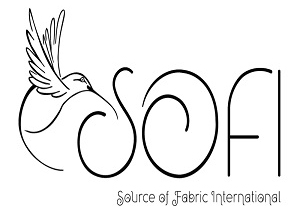Choosing the right fabric for your projects is crucial, and understanding the distinctions between different types can make all the difference. Two fabrics often compared are 100% cotton and muslin. What is the difference between 100% cotton and muslin? This article will delve into their unique properties, benefits, and best uses to help you make informed decisions.
1. Fabric Composition and Weave
100% Cotton: This fabric is made from pure cotton fibers and can come in various weaves, such as plain, twill, or satin. The quality and texture of 100% cotton depend on the type of cotton used and the tightness of the weave.
Muslin: Muslin is a type of cotton fabric characterized by its plain weave and loose texture. It is usually made from less processed cotton fibers, giving it a more natural and less uniform appearance. Muslin can vary in weight and fineness, from delicate, gauze-like cloth to thicker, more robust materials.
2. Texture and Feel
100% Cotton: The texture of 100% cotton can range from smooth and soft to coarse, depending on the weave and quality. High-quality cotton, such as Egyptian or Pima cotton, is known for its luxurious softness and smooth finish.
Muslin: Muslin has a distinctive soft, crinkled texture that feels lightweight and airy. It is generally softer and more pliable than many other cotton fabrics, making it ideal for applications where comfort and breathability are paramount.
3. Durability and Strength
100% Cotton: The durability of 100% cotton varies widely. High-quality, tightly woven cotton fabrics are strong and long-lasting, making them suitable for everyday wear, home textiles, and other items that require frequent use and washing. However, lower-quality cotton fabrics can be less durable and may wear out more quickly.
Muslin: Muslin is typically less durable than tightly woven cotton fabrics due to its loose weave. While it is not as strong as some other cotton fabrics, its durability is sufficient for many uses, such as clothing, baby swaddles, and lightweight blankets. Muslin’s delicate nature means it requires gentle care to maintain its integrity.
4. Breathability and Absorbency
100% Cotton: Cotton is known for its breathability and absorbency, making it a popular choice for clothing and home textiles. The breathability and absorbency of 100% cotton depend on the weave and thickness of the fabric. Tightly woven cotton fabrics are less breathable but more absorbent.
Muslin: Muslin excels in breathability due to its loose weave, which allows air to circulate freely. This makes it an excellent choice for hot-weather clothing, baby blankets, and other items where ventilation is important. Muslin is also absorbent, though not as much as tightly woven cotton fabrics, making it suitable for lightweight, absorbent items. Read More About What is the difference between 100% cotton and muslin?
5. Versatility and Uses
100% Cotton: The versatility of 100% cotton is unmatched. It is used for a wide range of products, including clothing, bedding, towels, and upholstery. Its availability in various weaves and finishes allows it to meet different needs and preferences.
Muslin: Muslin is highly versatile, especially for applications requiring a lightweight, breathable fabric. It is commonly used for baby products, such as swaddles and burp cloths, summer clothing, curtains, and craft projects. Its natural, rustic appearance also makes it popular for decorative and DIY uses.
Conclusion
In conclusion, while both 100% cotton and muslin are cotton-based fabrics, they have distinct characteristics that make them suitable for different uses. What is the difference between 100% cotton and muslin? The key differences lie in their composition, texture, durability, breathability, and versatility. Understanding these differences can help you choose the right fabric for your specific needs.
For high-quality cotton muslin fabric, explore our collection at SOFI. Our wholesale products offer the best in comfort, breathability, and versatility, perfect for a wide range of applications.


